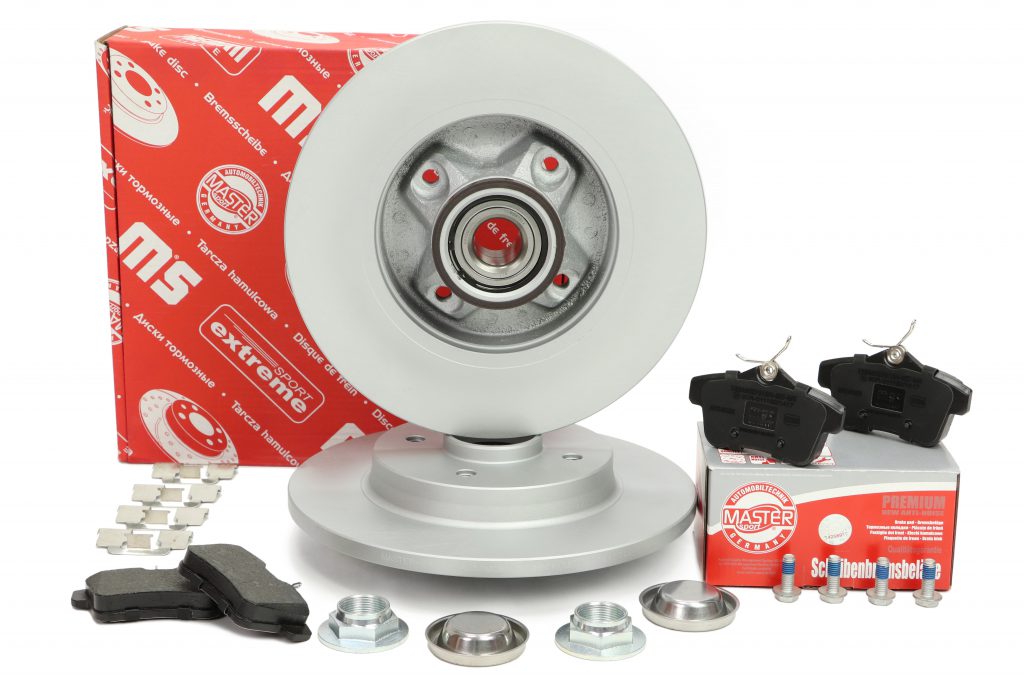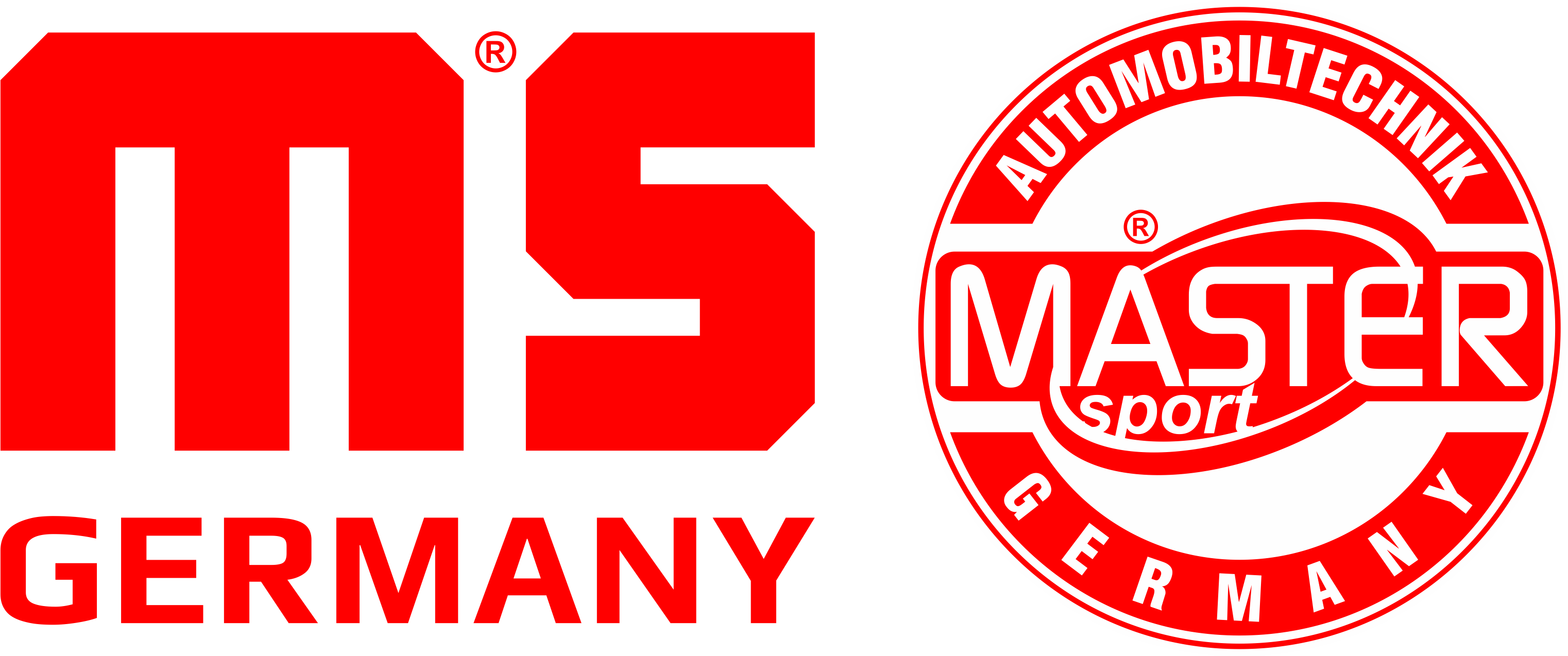When designing the brake system designed to reduce speed/stop the vehicle, brake discs and brake pads are treated as one structural item. All calculations of the braking efficiency and changes in effectiveness resulting from the increase in the temperature of friction elements are calculated for a particular pair of disc/pad. However, these elements during operation are subject to normal processes of wear and should be replaced with new ones. But then there is a problem of selecting brake pads and discs.
What should you pay attention to during the operation, so that braking remains effective, and how do you choose components for replacement?
Braking with thought
Braking involves the conversion of kinetic energy of the car into heat produced by the friction of the disc/pad interface. As a result, frictional wear occurs in the friction lining of the block and partly the brake disc. Additionally, it produces heat absorbed by the brake disc, and partly also by the blocks.
Hence, it is extremely important to use brakes appropriately. Accelerating the car at short distances and rapid braking (e.g. urban driving from junction to junction) is not only unjustified economically (increased fuel consumption) and in terms of time (after all, you still have to stop the car before the intersection). It also results in faster wear of the brakes. In addition to excessive abrasion of lining, such driving leads to another phenomenon – the lack of effective cooling of the brake discs. After all, acceleration at short distances and rapid braking generates heat which is absorbed by the disc, but it is not possible to cool down the discs (no flowing air stream). Furthermore, usually when reaching an intersection, the driver keeps their foot on the brake, which means that – at the interface with the block – there is no such temperature drop as in other parts of the disc. This, in turn, does additional damage to the braking disc.
Engine braking
Another element of the proper use of the brakes is riding in the mountains. The study that was to demonstrate the effect of constant low pressure in the brake system, causing constant friction of the friction elements (typical ride downhill with the brake pressed) showed that a much higher temperature is produced than in the case of pressing the brake pedal a single time. This phenomenon causes fading* and without replacing brake fluid, also vapor locks in the system (unreplaced brake fluid has a lowered boiling point and the heat transmitted by the pads and calipers may cause vapor lock in the system, thereby decreasing the braking efficiency).
In addition, the high temperature resulting from driving in the mountains affects the structure of materials, which made brake discs of lesser quality crack or deform with excessive load.
To sum up, when driving in the mountains, one should more frequently use the “engine braking” than brake excessively.
Caring for suspension
Few remember that damaged parts of the suspension, steering rods, badly set convergence, and even the imbalance of wheels have a direct impact on the damage to the brake discs. The wheel, and thus the brake disc, is exposed to direct forces acting on contact with the road (bumps, humps). As a result, the geometrical parameters are changed in damaged suspension elements and discs are affected by additional lateral forces. In practice, this manifests itself in depressions on the face of the disc due to sudden forces accumulating with the downforce of friction elements.
Driving without unduly straining the brake components, we have a chance to go longer mileages with unchanged components. However, due to the wear and tear, brake pads or discs will always have to be replaced sooner or later.
What is worth remembering during purchase?
Manufacturer selection
As mentioned at the outset, the pad and disc braking components are considered together when designing the system. Therefore, when you replace them, the components should be similar. But there is no need to purchase factory-made parts, which always come at higher prices. It is only important to always buy products with similar operating parameters. To do this, you should always make sure that the manufacturer has manufacture certificates and, most importantly, whether the products are ECE certified (This is permanently stamped on the brake pad / brake disc and ensures the quality approved by accredited laboratories, which have carried out comprehensive product tests).
Technological innovation
In the Master-Sport R&D department, product innovations are constantly developed, aimed to implement and improve the quality and competitiveness of products in the automotive market. As a result, we can buy products that reproduce the characteristics, materials and durability of the factory product (perhaps the term OE would be better?), but at the same are redesigned and better than the original. A typical example of this solution are all brake pads offered by Master-Sport, which use overlays (between the pad and the cylinder) made of noise- and vibration-absorbing material to prevent vibrations in the pads and limit the overlap of vibration in the braking system, perceived as a squeak during braking.
Keramik pads were also offered, with the friction layer’s structure, density and physical parameters significantly exceeding the requirements of the EU and of the car manufacturers. As a result, we have both longer life of the pad and better shear resistance, but also less sensitivity to reducing the friction efficacy at higher temperatures.
The choice suited to you
You should also pay attention to the manufacturer’s offer. For example, the offer of Master-Sport presents three product classes: Standard, Sport EXTREME, and Sport Klasse. The first one reflects original equipment products with their characteristics, materials and durability. Sport EXTREME is a special program of spare parts used in motorsports, whereas Sport Klasse is a line of selected products, successfully tested in rally cars, currently offered to users of mass-produced vehicles.
Therefore, it is not necessary to purchase the exact same brake pads/brake discs the manufacturer offers. Some companies give us the ability to match products to our driving style and the conditions under which we operate the vehicle. Most importantly, however, everything should be done in accordance with ECE, as only the symbol permanently stamped on the brake pad / brake disc ensures us the quality approved by accredited laboratories that have carried out comprehensive product testing.
At the end it is worth paying attention to the correct assembly of products. Doing this unprofessionally, carelessly and without proper assessment of the technical quality of the working components may result not only in a faster deterioration of parts, but also damage other components. Hence, it is worth commissioning the replacement to authorized specialists whose employees are properly qualified.
*(Fading is produced by high temperature (when braking, the temperature on the pad/disc interface exceeds 500 degrees Celsius) as a result of gas generating from abrasive material due to physical change in the heated abrasive material. As a result, an “airbag” is formed at the disc/pad interface and/or the structure of the material changes. This results in a decrease in the friction coefficient, hindering the effectiveness of the friction lining and proper deceleration of the vehicle)



